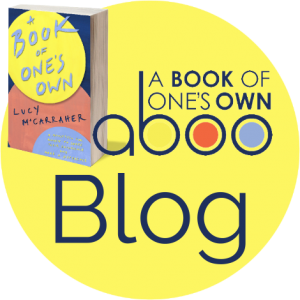Why do only half as many women entrepreneurs write and publish their business book as men?
Maybe for the same reasons that fewer women than men start their own businesses: they have less confidence in their own abilities, are more risk averse, and have to factor in caring responsibilities. They are also taken less seriously by organisations like banks, funders and publishers, and lack role models, mentors and networks.
- Women-led businesses are 86% less likely to be venture-capital funded than men-led ones[i]
- Women-run businesses receive only 9% of annual funding into UK start-ups[ii]
- Women-owned businesses win less than 5% of corporate & public sector contracts[iii]
- Women are considered less credible when delivering exactly the same pitch as a man[iv]
I founded the Business Book Awards (www.businessbookawards.co.uk) in 2017. I brought together an eminent Judging Panel of equal male and female business experts, authors and publishers with a female Head Judge, Alison Jones. When the rigorous judging process was completed, every category winner and the overall winner of the first Business Book of the Year was a white male author.
Of the 150 books entered, from big and small publishers and self-published authors, one third were written by women. Slightly less than a third of women authors made it through to the shortlist and not one to the line-up of eleven winners.
I analysed our list at Rethink Press where, as a hybrid publisher, authors approach us to publish their books – we don’t select them. Our 300+ titles were also one-third female to two-thirds male authors.’
Next, I carried out a survey and in-depth interviews with 50 female authors of business books and found that women entrepreneurs believe that they are up against the ‘6Cs’ both in business and in publishing:
- Confidence – women have less confidence than men in their own abilities and suffer from Impostor Syndrome
- Criticism – women are fearful of judgement and criticism – with justification
- Caring – women have to factor in caring responsibilities and feel selfish taking time out to write their book
- Cash – women are more risk averse and worry about investing time and money in book-writing and publishing
- Credibility – women lack credibility with external organisations like funders and publishers due to unconscious bias
- The Club – women lack the role models, mentors and networks that men automatically have access to. They don’t know where to get support and are nervous of ‘putting themselves out there’.
The findings are published in my latest book aimed at women in business, A Book of One’s Own – a manifesto for women to share their experience and make a difference. These are some of the hard facts about the unconscious bias that women face in publishing:
- Women’s books are priced lower than men’s[v]
- Books by women are reviewed less often than books by men and by more male reviewers[vi]
- Successful women authors win fewer literary prizes[vii]
- Manuscripts by women authors get less interest from publishers and agents[viii]
But I also found positive ways in which women can reframe their feelings of Impostor Syndrome and reluctance to ‘put themselves out there’. Women need to realise it’s not selfish to invest time and money in writing and publishing their book; it’s more selfish to withhold their knowledge and experience that could help their readers and their market, make their business more secure for their colleagues, and make their families proud of them.
I’m on a mission to inspire more women entrepreneurs to write their book and claim their authority in their niche. What’s more, becoming a published author is a gender-neutral way to gain credibility, and each individual book authored by a woman adds much needed respect for women in general.’
Contributors to A Book of One’s Own include:
Shaa Wasmund MBE (entrepreneur and best-selling author of Stop Talking, Start Doing) says ‘A Book of One’s Own is valuable reading for men and women; everyone needs to be aware of the conscious and unconscious bias that affects women. We need more non-fiction books written by female authors.’
Daniel Priestley (entrepreneur and best-selling author of four books including Key Person of Influence), said ‘We need to make sure that women understand that writing and publishing a book is a certain way of advancing their business success rate; that it supports an entrepreneur to be able to work fewer hours and have more freedom and flexibility, if that’s what they want to do, by raising their prices and generating leads.’
Jane Frankland, (international speaker and author of IN Security – Why a Failure to Attract and Retain Women in Cybersecurity is Making Us All Less Safe) said, ‘Writing the book was a sacrifice on family time, but when the box of books arrived, and my daughter held the physical book and read the acknowledgements, she actually cried. Both my sons and my daughter are so proud of the book, of being included in the book.’
A Book of One’s Own – a manifesto for women to share their experience and make a difference launches on 8th March 2019 (International Women’s Day).
If you are a woman entrepreneur needing information and support to write your book, or a published woman author who can share insights, please join the ABOO Circles private Facebook page https://www.facebook.com/groups/ABOOCircles/
Lucy McCarraher www.lucymccarraher.com
A Book of One’s Own www.abookofonesown.co.uk , www.amazon.co.uk/Book-Ones-Own-experience-difference/dp/1781333467/
Rethink Press: http://rethinkpress.com/
Business Book Awards: www.businessbookawards.co.uk
Lucy McCarraher, Founder & Director, Rethink Press; Mentor, Key Person of Influence programme; Founder Business Book Awards
[i] https://www.home.barclays/content/dam/barclayspublic/docs/BarclaysNews/2017/Mar/0001_FFF_AccesstoFinanceScaleUp_AWK_WEB.pdf
[ii] https://www.telegraph.co.uk/women/business/200-business-leaders-mps-sign-telegraph-letter-urging-government/
[iii] NPCWE / Prowess ‘Procurement: Fostering Equal Access for Women’s Enterprise, 2009
[iv] http://gap.hks.harvard.edu/investors-prefer-entrepreneurial-ventures-pitched-attractive-men
[v] Weinberg DB, Kapelner A (2018) ‘Comparing gender discrimination and inequality in indie and traditional publishing’. PLoS ONE 13(4): e0195298. https://doi.org/10.1371/journal.pone.0195298
[vi] http://www.vidaweb.org/the-2017-vida-count/
[vii] https://www.theguardian.com/books/2015/jun/05/kamila-shamsie-2018-year-publishing-women-no-new-books-men
[viii] https://jezebel.com/homme-de-plume-what-i-learned-sending-my-novel-out-und-1720637627
